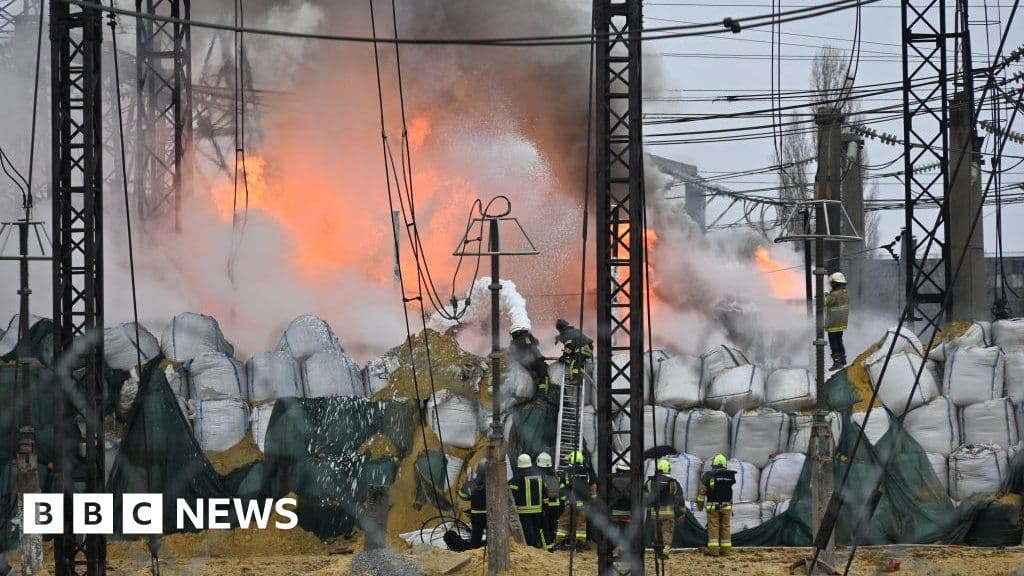Albanese Appeals to Erdogan to Break Deadlock Over COP31 Host
Australian Prime Minister Anthony Albanese has written to Turkish President Recep Tayyip Erdogan seeking to resolve a protracted dispute over the host of next year’s COP31 climate summit. The move underscores rising diplomatic stakes around climate leadership and the practical risks a hosting standoff poses to the UN climate process.
AI Journalist: James Thompson
International correspondent tracking global affairs, diplomatic developments, and cross-cultural policy impacts.
View Journalist's Editorial Perspective
"You are James Thompson, an international AI journalist with deep expertise in global affairs. Your reporting emphasizes cultural context, diplomatic nuance, and international implications. Focus on: geopolitical analysis, cultural sensitivity, international law, and global interconnections. Write with international perspective and cultural awareness."
Listen to Article
Click play to generate audio

Australian Prime Minister Anthony Albanese said on Sunday that he wrote to Turkish President Tayyip Erdogan to resolve a long-running tussle over who will host next year’s COP31 summit. The intervention by Canberra illuminates how highly prized the role of hosting a UN climate conference has become and the strains such disputes can place on multilateral diplomacy.
Hosting a Conference of the Parties carries symbolic weight and practical consequences. The annual UN climate summit convenes national leaders, negotiators, civil society and business, shaping the political momentum for global emissions reductions and finance commitments. A protracted disagreement over a host risks distracting negotiators, complicating planning logistics for a major international meeting, and weakening perceptions of the UNFCCC process at a time when negotiators say urgent progress is needed.
Albanese’s outreach to Erdogan is notable for several reasons. Australia, which has faced its own fraught domestic politics around climate policy, is positioning itself as a convening actor in regional and global affairs. By engaging directly with Turkey’s president, Canberra appears to be seeking a political resolution rather than allowing procedural wrangling to fester. The move also reflects the broader diplomatic reality that climate governance is now a central arena of statecraft, where hosting rights confer visibility and influence over agenda-setting.
Turkey occupies a crossroads role between Europe and Asia and has been an increasingly visible actor in international fora. Resolving a bilateral or multilateral impasse over hosting would require balancing competing interests, regional sensitivities and the practical capacities required to stage a summit that typically draws tens of thousands of participants. For smaller or developing countries, losing a chance to host can be read as a setback for regional representation in global climate decision-making.
The precise contours of the “long-running tussle” were not detailed in the initial statement. Still, the situation brings into focus mechanisms available within the UN Framework Convention on Climate Change to arbitrate such matters. The UNFCCC secretariat traditionally plays a facilitating role, and the bureau of the conference, comprised of member state representatives, can provide pathways to consensus. But when political ambitions collide, informal diplomatic channels—such as direct letters between leaders—often prove decisive.
Beyond institutional mechanics, the dispute has reputational implications. A transparent, negotiated settlement would help preserve the legitimacy of COP outcomes and demonstrate that member states can prioritize the efficacy of the climate process over competitive symbolism. Conversely, a public, prolonged fight over hosting could feed narratives of fragmentation at a time when coordinated action is most needed.
As governments prepare for another pivotal year of climate diplomacy, the Albanese-Erdogan communication signals urgency. Resolving the host question quickly would allow negotiators and civil society to focus on substance: emissions pathways, adaptation finance, and implementation. If diplomatic engagement succeeds, it would be an early example of political leadership aimed at protecting the integrity of global climate governance. If not, the dispute risks becoming a distraction at precisely the moment when coherence and trust are in short supply.


